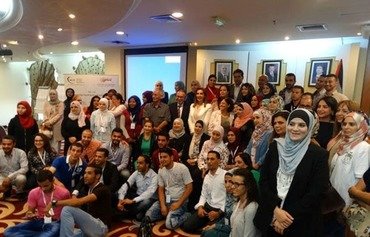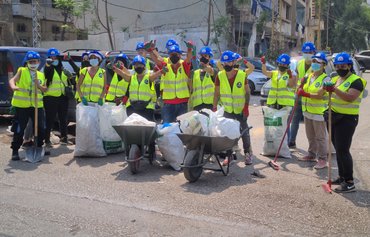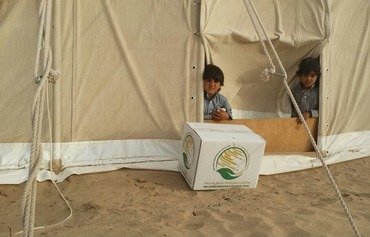More than 35 Lebanese non-governmental organisations (NGOs) that work with youth development recently concluded nine months of a joint initiative designed to help them fight extremism more effectively by working together.
"NGOs are Stronger Together" participants gathered on December 18th to receive their awards at the conclusion of the initiative during which they exchanged their experiences on developing the capacities of young people in order to steer them away from violent extremist ideology.
The initiative sought to bring together youth from around Lebanon who want to engage in dialogue and effective co-operation to build a peaceful and stable society, officials in charge of the initiative told Al-Mashareq.
Implemented by the Middle East Partnership Initiative-Lebanon Alumni Association (MEPI-LAA), the initiative enabled NGOs and youth to create a partnership and build dialogue with youth of all affiliations, sects and regions.
It also aimed to refine the skill set and role of young people to help them bring about change and encourage participation in community issues.
The networking events held throughout the months-long initiative aimed "to engage youth from all provinces", said Kawthar Abdul Fattah, the mid-Bekaa co-ordinator of Bena' Ajyal al-Salam.
The objective was to "turn any tendencies [youth] may have that are destructive to their future into tendencies that develop their capabilities and skills through workshops that empower them", she told Al-Mashareq.
Extremist attempts to recruit or indoctrinate young people to support or carry out acts of violence are incompatible with the principles of any religion, she said.
The initiative's cross-organisational networking is in line with Bena' Ajyal al-Salam's peace-building mission, its promotion of democracy and development and the involvement of youth and women in political life, she added.
"We are trying through the organisation and by networking with other NGOs to clear [young people's] heads of extremist ideas via dialogue with specialised instructors and the conduct of awareness raising workshops," Abdul Fattah said.
Through Bena' Ajyal al-Salam's programmes, she said, the youth of the mid-Bekka Valley and of the Majdal Anjar area are taught to refocus their outlook away from extremism and deviant ideology.
"Our work comes at a time when we are witnessing terrorist groups trying to use various means to recruit the youth with an extremist discourse," she said.
Securing youth employment
The Alawite Islamic Charity Association in the northern city of Tripoli works with a number of ministries and NGOs to secure youth employment, said association official Mohammed Ismail.
"We have succeeded in securing [jobs] for 130 young men and boys as part of the 'Cash for Work' project," he told Al-Mashareq.
The networking initiative has had a great impact on the development of the skills and capabilities of youth who are determined to move forward, he said, by helping them find ways to connect with others in the country.
"Networking with NGOs under these circumstances allows us to learn of the experiences of others in educating the youth about the dangers of being drawn to terrorist groups and murderous extremist ideology," he said.
"Today more than at any other time we need to network the work of NGOs and benefit from the experiences of each one of them to help our youth, educate them and develop their capabilities," he added.
Working towards a common goal
NGOs often do not communicate effectively with each other in order to work towards a common goal, said MEPI-LAA executive director Nada Hamza.
"So, we thought of networking them, and launched the 'NGOs are Stronger Together' initiative in March to build alliances and partnerships between NGOs so they can work together on common social issues," she told Al-Mashareq.
"Networking helps youth acquire skills to resolve conflicts within teams and groups," she said, adding that the participants chose to work on topics of interest to young people, such as rural and youth development and citizenship.
The NGOs also devoted considerable effort to determining why some youth are susceptible to being influenced by extremist ideology, finding this was generally due to difficult circumstances, "such as not being able to find a job", she said.
Unemployment is a key factor in the gravitation of youth towards extremism and joining terrorist groups that give them money, she said.
The networking initiative has opened the door for the creation of partnerships and the exchange of expertise and experience to help Lebanese youth deal with these challenges and others that they face, Hamza said.

![A group of youth and members of non-governmental organisations take part in a youth empowerment workshop. [Photo courtesy of Kawthar Abdul Fattah]](/cnmi_am/images/2017/01/09/6985-Lebanon-workshop-youth-600_384.jpg)






